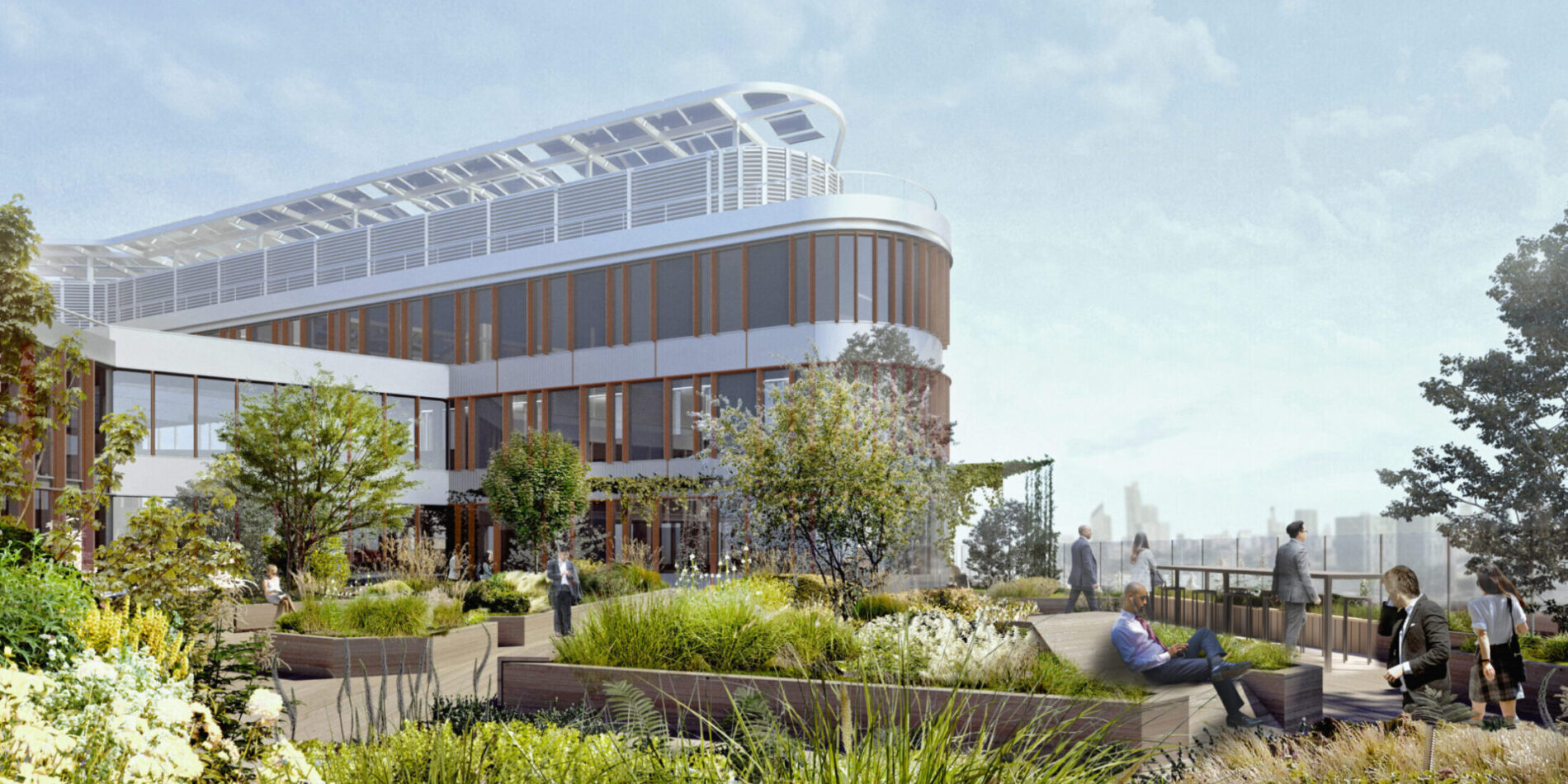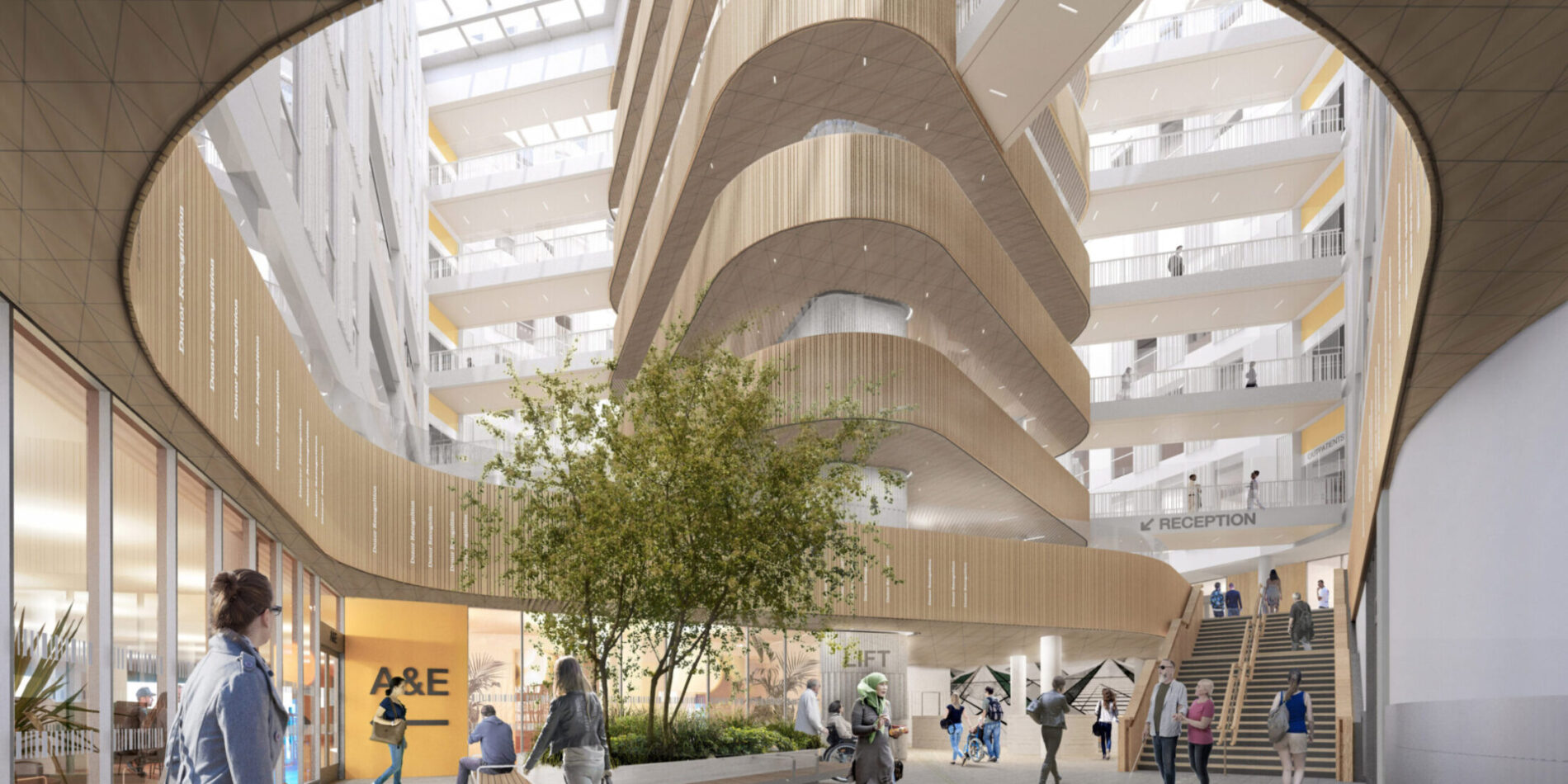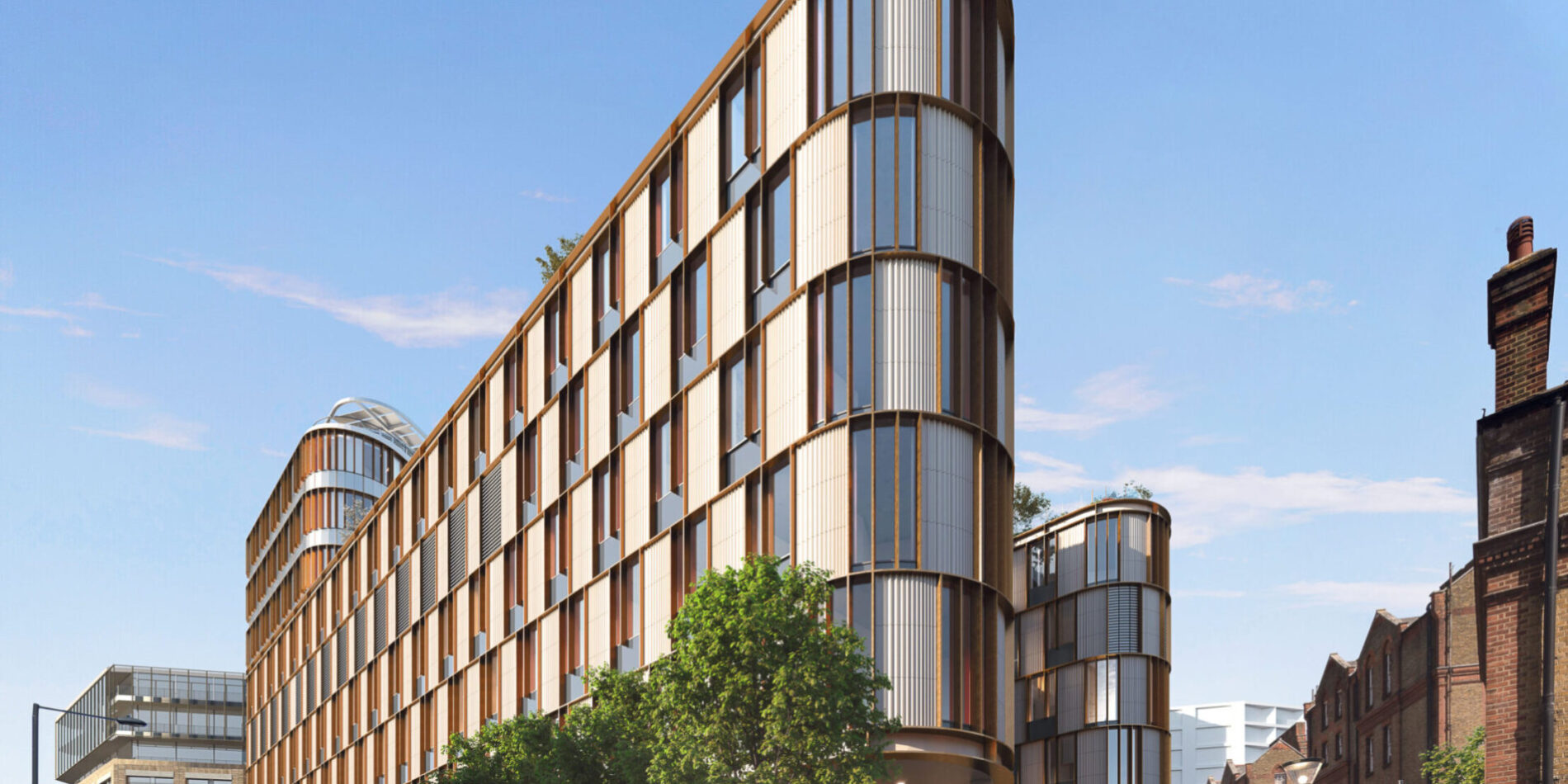Summary
Framework/Partnership // NHS SBS Framework
Project Type // Newbuild
Start Date // July 2022
Date Complete // 2027
Location // London, UK
Moorfields Eye Hospital NHS Foundation Trust and University College London (UCL) are proposing to develop two acres of the five-acre St Pancras Hospital site as part of their ambitious development as part of the governments New Hospital Programme. This site in Camden, London will provide the Client with an excellent location, ideally situated close to multiple public transport hubs, also near the UCL’s existing estate.
The five-acre site of St Pancras Hospital is currently owned by Camden and Islington NHS Foundation Trust. The existing mental health inpatient wards located at St Pancras Hospital are planned to move to a new, purpose-built facility next to the existing Highgate Mental Health Centre and the Whittington Hospital.
Six buildings at the site of the existing Moorfields’ Eye Hospital will be demolished to clear space for the new 39,500 sqm facility. The new centre will be accessible by two entrances. The entrance from Granary Way will be at ground level, while the main entrance from St Pancras Way will be at lower ground level. Both entrances to the new centre will lead to Oriel, where the emphasis of design is to support independent wayfinding with the help of friendly volunteers and staff.
Harnessing all their expertise under one roof in a new fit-for-purpose centre will enable closer collaboration between clinicians and researchers to speed up the delivery of treatments and therapies for patients – ultimately helping them to work together under to discover, develop and deliver the best eye care.
At the building’s heart, there is a spacious atrium surrounded by clinical, research and education spaces. Within the atrium there will be a central, light-filled space between the two wings of the building, called the “Oriel”. Oriel is intended to be the social heart of the building, with various facilities and usable space on every floor, from which bridges lead to departments and rooms in the two wings.
The project, which now has full business case approval, aims to be a centre of excellence, and will focus on driving innovation and speeding up the translation of research findings into treatment. The designers’ approach to interiors and landscape will enable a seamless collaboration between clinicians, patients, and researchers. It will provide a flexible and adaptable frame to facilitate future evolution in clinical, research and education practices, and make a beautiful centrepiece for a new neighbourhood – a renewed St Pancras as part of an evolving Knowledge Quarter.

Service
exi‘s multi-disciplinary design and construction consultancy team were appointed by the joint initiative of Moorfields Eye Hospital and UCL Institute of Ophthalmology to provide NEC Supervisor and Principal Designer services from RIBA stage 4 onwards.
To fulfil the various specialist advisory disciplines within the NEC Supervisor role, we have proposed a multi-disciplinary approach for this appointment, providing knowledgeable and competent specialist input continuing throughout the construction period, which include the following disciplines:
- Architectural,
- Building Services, and
- Civils and Structures duties.
These services are complemented by our own internal project/design management support, ensuring project deliverable oversight, accountability, team collaboration and essential support to the commission to ensure the workload is managed efficiently and Supervisor / PD duties are completed in a timely manner in line with the NEC contract requirements.
The NEC Supervisor acts on behalf of the Client to notify defects, check the development of the design is in line with the Contract Scope and check that works are being undertaken in accordance with the Contract Scope and to the quality as set out in the Scope.
The main responsibilities of the Supervisor under the NEC 4 Option A include, but are not limited to, the following:
- Work closely with the Employer, Project Manager, Contractor and Others to foster a partnering culture. The culture will embody the principles of mutual trust and co-operation with an overall aim of delivering a successful Project on time and to budget.
- The Supervisor does its tests and inspections without causing unnecessary delay to the work or to a payment which is conditional on a test or inspection being successful.
- Until the Defects date, the Supervisor may instruct the Contractor to search for a Defect.
- Until the Defects date, the Supervisor notifies the Contractor of each Defect.
- The Supervisor issues the Defects Certificate at the later of the Defects date and the end of the last Defect correction period.
- Participate in the early warning process by notifying the Project Manager as soon as it becomes aware of any matter which could:
– Increase the total of the Prices.
– Delay Completion.
– Delay meeting a Key Date
– Impair the performance of the works in use.
When the Supervisor is requested / required to respond to a Design Submission or any other contractual communication, it is prudent for the Supervisor to consider the views / feedback of all subject matter experts inclusive of the Client and related end-users in making an assessment. As such, the Supervisor would need to avail themselves with all relevant information to be able to confirm whether the Contractor’s Design Submission or any other contractual communication is acceptable and in line with the Scope.
In addition to the above, we are also appointed as CDM Principal Designer from RIBA Stage 4 onwards. The CDM Principal Designer is the person or organisation nominated to be responsible for Health and Safety as defined in the CDM Regulations 2015 and to provide advice to the Client in line with their responsibilities as defined in the CDM Regulations 2015.
Added value & outcomes
The project budget has proved to be a challenge during the early stages due to inflationary pressures. As such we have been actively involved with value engineering discussions to offer advice and technical services in assessing and offering specialist input to assist in closing out urgent matters which influence decision making.
The benefits of our role are to provide the Client with technical input through Stage 4 design which provides an objective view on proposed solutions, strategies, coordination, and facilities management issues. Our strong technical background has assisted the Client in making informed decisions and ensuring the contractor’s appointed design team are discharging their contractual obligations as required.
The specific duties and nature of the NEC Supervisor role provides a collaborative approach to working with the Client, Stakeholders, and the contractor. This culture of collaboration was kicked off at the start of the project with a formal Conditions for Success workshop, to define how we integrate with all involved to avoid an ‘us and them’ approach for the good of the project.

We are very much looking forward to this project, and further strengthening our relationships with client, the project delivery team, JV partners and the stakeholders. We are looking forward to providing ‘excellence’ in the delivery of our services, in the usual exi way. The project will provide a fantastic environment to promote innovation & change for both patients and staff in transforming the future of eye care, research, and education, and one we are proud to support.

